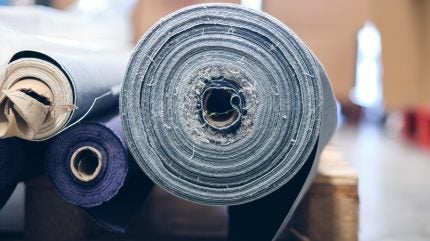
The report, titled ‘A Reference for Water Consumption During Indigo Dyeing,‘ aims to address the lack of clarity and accountability regarding sustainability claims within the denim sector.
The study is a result of collaboration over several months involving dye experts, mill technicians, machinery manufacturers, and chemical suppliers.

Discover B2B Marketing That Performs
Combine business intelligence and editorial excellence to reach engaged professionals across 36 leading media platforms.
It creates baseline and “best-in-class” water use metrics for rope and slasher dyeing systems.
These metrics were derived from data gathered from seven mills located in Pakistan, Türkiye, Italy, and China.
The research reveals substantial variations in water usage between rope and slasher dyeing methods, yet indicates potential for considerable reduction with proper practices.
It underscores the necessity for precise monitoring, consistent process control, and intelligent water management to enhance dye efficiency and lessen environmental impact.

US Tariffs are shifting - will you react or anticipate?
Don’t let policy changes catch you off guard. Stay proactive with real-time data and expert analysis.
By GlobalDataMembers of the Indigo Council include industry leaders such as Candiani Denim, Crescent Bahuman, Diamond Denim, Naveena Denim, Soorty, Orta, and Advance Denim.
Morrison Textile Machinery and Karl Mayer provided machinery support while bluesign and DyStar contributed technical oversight.
Transformers Foundation founder Andrew Olah said: “One of the most encouraging findings in this report is the willingness of mills to work together and share data transparently, a testament to Transformers’ culture of collaboration. It’s a powerful reflection of the strength and integrity of our supply chain.
“Prior to this report, claims like ‘80% less water’ have frequently gone unchallenged. Without transparency and specificity, such figures become marketing jargon: just enough to sound responsible, never enough to be meaningful. Real sustainability requires real data, and this report provides exactly that.”
The report comes amid heightened scrutiny over environmental claims in the denim industry due to regulations like the EU Green Claims Directive, the UK Green Claims Code, and legal actions in the US against deceptive green claims.
This paper is designed to offer a verifiable framework for brands, mills, and innovators to measure water usage against a common standard and evaluate new dye technologies or chemical systems based on solid evidence.
The initiative does not advocate for one dyeing technology over another but promotes a transparent framework conducive to industry-wide sustainable progress.
The Indigo Council and Transformers Foundation expects other stakeholders, particularly mills and suppliers, to unite in sharing data and developing open-source tools that bolster sustainability efforts from within the supply chain.
Transformers Foundation technical director Paolo Leidi said: “This report marks a historic first in the denim industry, bringing together mills from across the globe to share verified, third-party data on actual water use. We hope it sets the stage for ongoing cooperation across the supply chain, building a more transparent and responsible industry.”





